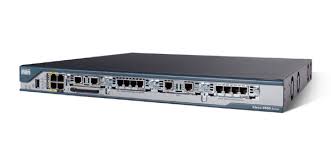In this week’s infrastructure news, Cisco blames service providers for its lower forecast, Hewlett-Packard partners with Nokia Networks, and Alcatel-Lucent affirms its commitment to router hardware, even as it launches new edge routing software.
Cisco trims forecast as service providers trim capex
Cisco reported record revenue but lower earnings yesterday, referencing a “tough environment,” and blaming weaker sales to AT&T and other service providers for another expected earnings decline this quarter. Cisco CEO John Chambers also said that President Obama’s net neutrality proposal, if enacted, will be very negative for the infrastructure business.
Sales were $12.2 billion in the most recent quarter, and net income was $1.8 billion, down 8.4% from the year-ago quarter. For the current quarter, management is forecasting 4%-7% revenue growth, with a midpoint of $11.8 billion.
“We think service providers are 25%-30% of sales, with the U.S. a teens percentage and AT&T under 5%,” said analyst Simon Leopold of Raymond James. “Emerging markets are perhaps 20% of sales, with BRIC plus Mexico down 12% in the quarter.”
Cisco also said yesterday that its CFO Frank Calderoni is stepping down. Kelly Kramer, SVP of business technology and operations finance, will replace Calderoni.
Nokia brings LTE-A to small cells
Nokia Networks says it is the first to bring LTE-Advanced to small cells through carrier aggregation. The company says it has achieved peak data rates of 200 megabits per second.
Nokia is promoting LTE-A as part of its Flexi Zone small cell solution, which supports up to 600 active users or devices. Nokia says it has secured ten new small cell customer contracts within the past month and a half.
Alcatel-Lucent router update
Alcatel-Lucent said that hardware and software each have important roles to play in the evolving mobile network, and that carriers need to avoid the “false choice between virtual and physical.” In remarks prepared for the company’s Tech Symposium 2014, the company’s Basil Alwan said that Alcatel-Lucent is committed to extending its purpose-built routing hardware, and that hardware-based routers continue to offer the “highest performance, lowest cost and lowest power possible.”
Alwan, who is Alcatel-Lucent’s president of IP routing and transport group, said in a blog post that even as the company is launching new edge routing software, it is encouraging customers to combine virtualized solutions with “the raw processing power of hardware-based router functionality to drive network performance.”
Alcatel-Lucent recently announced several new core router customers, including all three of China’s largest wireless carriers. The company competes with Cisco, Juniper and Huawei in this market, which is under some pressure as carrier spending levels off and service providers explore virtualization.
HP partners with Nokia Networks
HP servers are the “off-the-shelf” hardware of choice for many operators running virtualized network functions, and HP knows that eventually even standard servers can move to the cloud. With that in mind, the server giant has partnered with Nokia Networks to create a telco cloud offering.
The Nokia/HP offering complies with the network function virtualization (NFV) principles outlined by ETSI, the telco group working to define NFV standards. The companies said they want to create a cloud infrastructure layer that integrates HP data-center hardware and is based on HP Helion OpenStack technology. The solution will also incorporate HP’s hypervisor, software that enables multiple operating systems to share the resources of a single processor, as well as Nokia’s cloud application manager software.
Nokia expects carrier-grade solutions based on HP Helion OpenStack to be available by mid-2015. The company says its expanded cooperation with HP is in line with its strategy of offering operators access to the cloud technologies that best fit their specific needs.
Follow me on Twitter.

